
Some TV shows are epic. Some are iconic. And some… barely make it out of the gate. These are the blink-and-you-missed-it series—shows that were hyped, launched, and unceremoniously cancelled after just a few episodes.
Whether they were too weird, too bland, too ambitious, or just too much, these short-lived wonders didn’t stand a chance.
Despite big stars, buzzy concepts, or expensive marketing, they fizzled faster than you can say “midseason replacement.”
From crime dramas to sitcom misfires, here are the shows that networks couldn’t cancel fast enough—and the glorious, chaotic messes they left behind.
The Beautiful Life, The CW (2009)
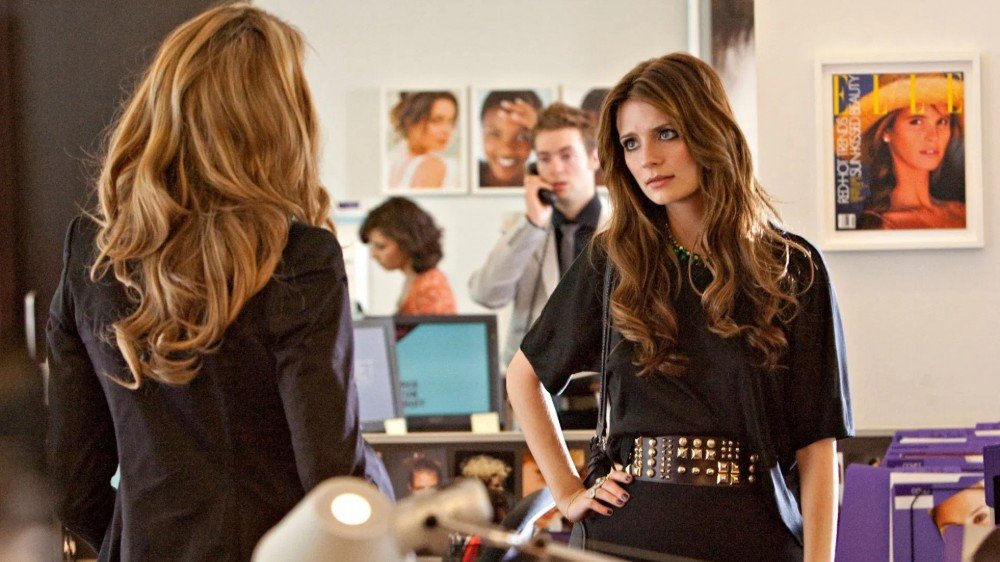
The CW was banking on The Beautiful Life being the next Gossip Girl—but with runway walks and model drama.
Produced by Ashton Kutcher and starring Mischa Barton, the show strutted onto the screen with high heels and high hopes… and promptly face-planted.
Critics called it shallow, the writing clunky, and audiences bailed almost immediately.
After just two episodes, CW yanked it, making it one of the fastest cancellations in the network’s history. Turns out, beautiful people behaving badly just wasn’t enough.
In the end, this show wasn’t fashion-forward—it was just fast-forwarded straight into the cancellation bin.
Viva Laughlin, CBS (2007)

When Viva Laughlin launched, it was pitched as a sexy casino drama with musical numbers. Think Las Vegas meets karaoke night gone wrong.
Even with Hugh Jackman onboard (briefly), viewers weren’t buying it. After two episodes in the U.S. (and only one in Australia), CBS shut it down faster than you can say “bad cover of ‘Viva Las Vegas.’”
Critics were brutal. Audiences were confused. And the idea of characters breaking into pop songs mid-murder mystery? Yeah… didn’t quite sing.
It remains one of TV’s most gloriously bizarre experiments—ambitious, tone-deaf, and delightfully doomed.
Do No Harm, NBC (2013)

Do No Harm asked, “What if Dr. Jekyll and Mr. Hyde were set in a hospital and made very dramatic?” The answer: you’d get NBC’s shortest-lived drama ever.
With a record-low premiere rating and reviews that called it “unintentionally hilarious,” the network pulled the plug after two episodes.
Steven Pasquale did his best playing a neurosurgeon by day and chaos agent by night, but the tone was all over the place—too serious to be camp, too bonkers to be taken seriously. And even Lin-Manuel Miranda’s presence on the recurring cast couldn’t save the show.
It’s a classic example of a cool concept torpedoed by execution. Irony alert: this show did harm, mostly to itself.
Doubt, CBS (2017)

Doubt had a star-studded cast—Katherine Heigl, Laverne Cox, Elliott Gould—and a promising legal drama setup. But even courtroom heavyweights couldn’t save it.
The show followed a defense attorney who starts falling for her possibly-murderous client. Audiences weren’t sold, and CBS canceled it after just two episodes.
Critics called it dull and unconvincing, and Heigl’s unlucky streak in TV continued. The rest of the episodes quietly aired months later—burned off in the summer when no one was watching.
Despite its title, there was no doubt this one wouldn’t last. At least it gave us the first transgender series regular in a broadcast drama.
Made in Jersey, CBS (2012)

Made in Jersey was like if Legally Blonde got lost on its way to a procedural.
The show followed a tough-talking, working-class Jersey girl turned Manhattan lawyer—complete with teased hair, sass, and lots of “you got a problem with that?” vibes.
CBS gave it a prime slot… and then bailed after two episodes. Critics weren’t kind, calling it cliché-ridden and too cartoonish to take seriously.
The series wasn’t bad bad—it just couldn’t figure out if it was a fish-out-of-water dramedy or a hard-hitting legal show. In the end, it was briefly in Jersey… and even more briefly on air.
We Are Men, CBS (2013)

A sitcom about four single guys living in the same apartment complex sounds like a buddy-comedy slam dunk, right? Nope.
We Are Men had a decent cast—Tony Shalhoub, Kal Penn, Jerry O’Connell—but couldn’t rise above its lazy, bro-ish vibe. The jokes were dated, the premise paper-thin, and critics pounced.
CBS pulled the plug after two episodes, making it clear that “men being men” wasn’t the cultural moment it thought it was.
It tried to be Entourage meets Friends, but came off more like Two and a Half Memes. In the end, we were men… who changed the channel.
Head Cases, Fox (2005)

This legal dramedy starred Chris O’Donnell and Adam Goldberg as mismatched lawyers—one uptight, the other… mentally unstable.
Fox hoped the odd-couple formula would click, but audiences weren’t laughing (or watching). After just two episodes, the network slammed the gavel and canceled the case.
Reviews called it tonally confused—was it funny? Serious? Offensive? All three? O’Donnell’s big TV comeback fizzled fast, and Goldberg’s manic energy wasn’t enough to save it.
Head Cases had potential, but much like its title characters, it just couldn’t hold it together long enough to make a lasting impression.
The Fifth Corner, NBC (1992)

The Fifth Corner was a spy thriller with a twist: the protagonist wakes up with no memory, surrounded by guns, secrets, and women who may or may not want to kill him.
Sounds like Jason Bourne, right? Only this aired before Bourne-mania and was canceled after just two episodes on NBC.
Alex McArthur starred as the mysterious Richard Braun (yes, really), and while the concept had intrigue, it was weighed down by clunky pacing and cheesy dialogue.
The show promised espionage, action, and mystery—but never got to the good parts. A cool title, a decent hook… and a quick vanishing act.
Work It, ABC (2012)

One word: yikes. Work It was an ABC sitcom where two out-of-work guys dress as women to land jobs at a pharmaceutical company. Yes, this was a real thing.
ABC aired two episodes, and that was enough for critics and audiences to revolt.
The show was slammed for being tone-deaf, offensive, and just plain unfunny—like Bosom Buddies, but somehow less self-aware and way more cringe. GLAAD called it harmful, viewers tuned out, and ABC quietly buried it.
The laugh track couldn’t save it, the wigs didn’t help, and in the end, Work It worked itself straight into cancellation infamy.
The Paul Reiser Show, NBC (2011)

NBC hoped The Paul Reiser Show would be a Curb Your Enthusiasm-style comeback for the Mad About You star—but what they got was a limp, awkward meta-comedy that felt more like a Larry David tribute act.
Playing a fictionalized version of himself, Reiser navigated suburban dad life and career aimlessness… and viewers responded with a collective “meh.”
After two episodes, NBC pulled the plug, and Reiser later admitted even he didn’t think it was great.
It was the rare show that managed to make both Paul Reiser and a Paul Reiser Show seem like bad ideas. Brutal, but honest.
Of Kings and Prophets, ABC (2016)

ABC tried to go full Game of Thrones: Old Testament Edition with Of Kings and Prophets, a gritty retelling of the biblical story of Saul and David—complete with sword fights, steamy scenes, and dramatic stares.
But it turns out audiences weren’t exactly clamoring for sexy Samuel.
The show premiered to low ratings and worse reviews, and after two episodes, it was smited right off the schedule. Critics called it joyless and clunky, with a tone that couldn’t decide if it was holy scripture or a medieval soap opera.
It aimed for epic but got epically canceled instead.
Lone Star, Fox (2010)
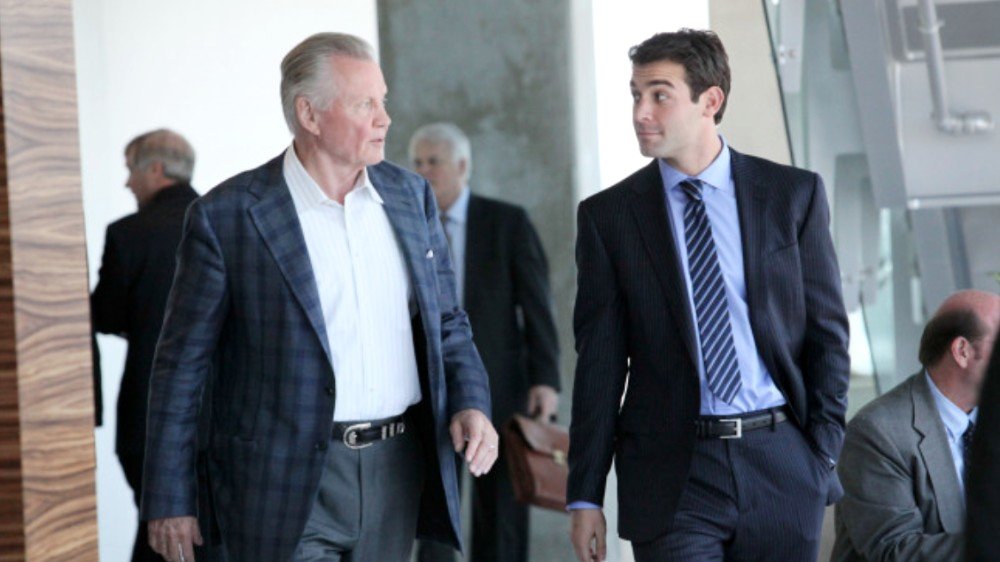
Critics loved Lone Star. Viewers… not so much.
This ambitious Fox drama followed a charming Texas con man juggling two identities, two lives, and two wives.
Slick, smart, and packed with potential, it was called “the best new show no one’s watching.” And that turned out to be true.
After just two episodes, Fox pulled the plug due to dismal ratings. It was too complex for casual viewers and too slow-burning for a flashy network debut.
Now it’s remembered as one of the great “what could have been” tragedies of TV.
Strange World, ABC (1999)

Before streaming, shows like Strange World didn’t just disappear—they evaporated.
This dark, high-concept sci-fi drama followed a military doctor exposed to a chemical that made him terminally ill, then recruited into a shadowy organization investigating fringe science.
Sounds cool, right? Too bad ABC aired only three episodes before pulling it. The rest were dumped onto Sci-Fi Channel years later.
It was moody, weird, and ahead of its time—but it never found an audience.
Strange World now lives on in cult-TV purgatory: not quite remembered, not totally forgotten, and definitely stranger than your average ’90s drama.
The Playboy Club, NBC (2011)
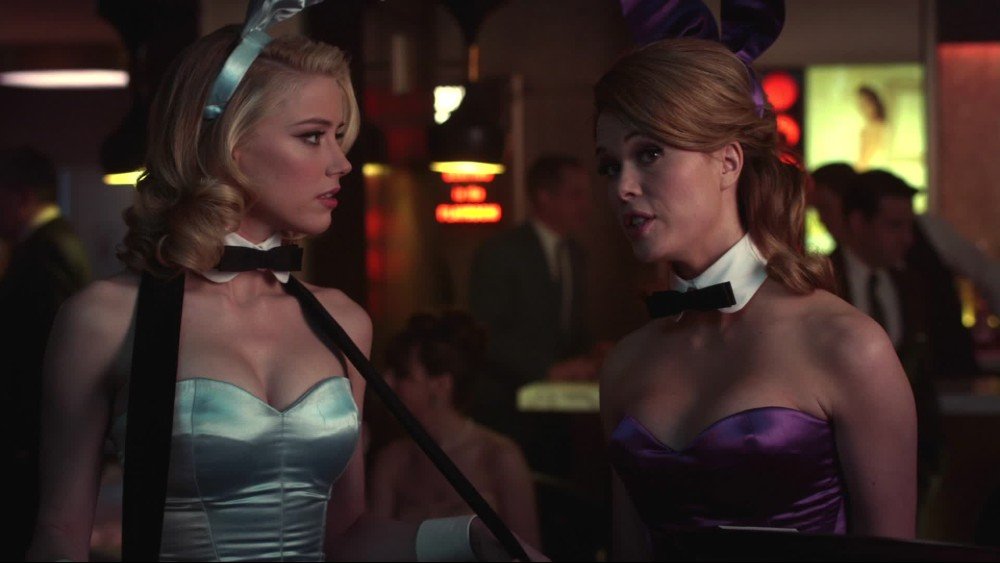
NBC tried to channel the retro-cool success of Mad Men with The Playboy Club, but instead of sophisticated drama, we got bunny costumes, clunky dialogue, and a plotline involving a mobster murder cover-up.
Critics weren’t impressed, and neither were viewers—after three episodes, NBC shut the doors on the club.
Controversy from advocacy groups didn’t help, and neither did the show’s weird attempt to make the Playboy lifestyle look empowering.
It wanted to be classy and edgy, but it ended up awkward and confused. Hugh Hefner may have approved, but the audience said, “No thanks.”
Ironside, NBC (2013)

Blair Underwood is a great actor—but even he couldn’t wheel this remake out of disaster territory.
A reimagining of the classic 1960s crime drama, Ironside followed a paraplegic detective solving cases in New York with a no-nonsense attitude and a gun in his lap.
NBC aired three episodes before realizing viewers weren’t interested in a grim reboot nobody asked for. Critics slammed it for being joyless and for casting an able-bodied actor in a disabled role.
The show tried to be gritty and “modern,” but ended up more like CSI: Try-Hard. Verdict: case dismissed.
Welcome to the Family, NBC (2013)
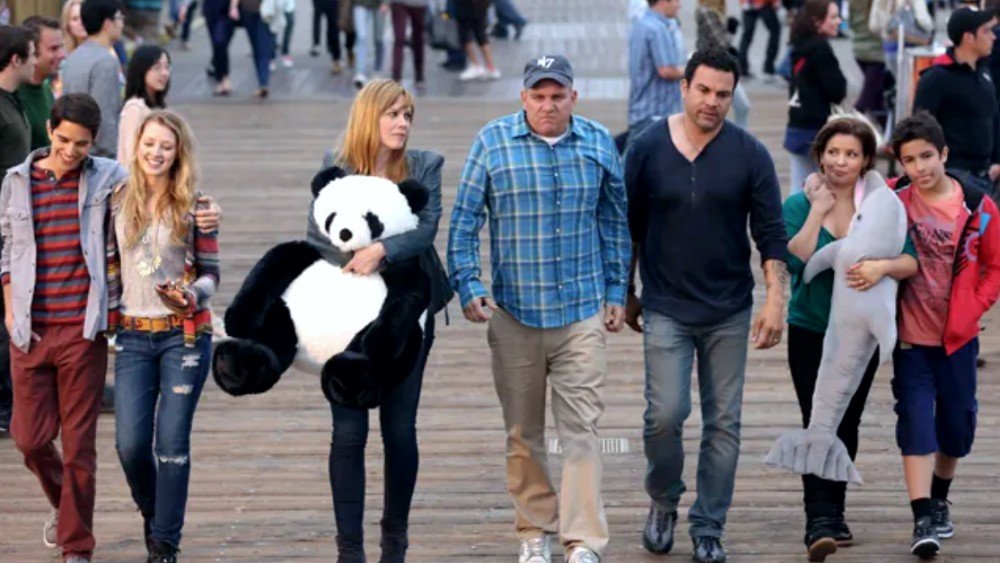
Welcome to the Family had a promising setup: two culturally clashing families brought together by a teenage pregnancy.
NBC hoped for warm laughs and relatable chaos—but what they got were bad jokes, stiff performances, and ratings that screamed “cancel me.” After three episodes, the show was yanked.
Despite a talented cast (including Glee’s Mike O’Malley), the series felt flat, rushed, and weirdly tone-deaf. It turns out forced family bonding and recycled punchlines weren’t enough to make viewers feel at home.
Cancellation came quicker than an awkward dinner with the in-laws.
Smith, CBS (2006)
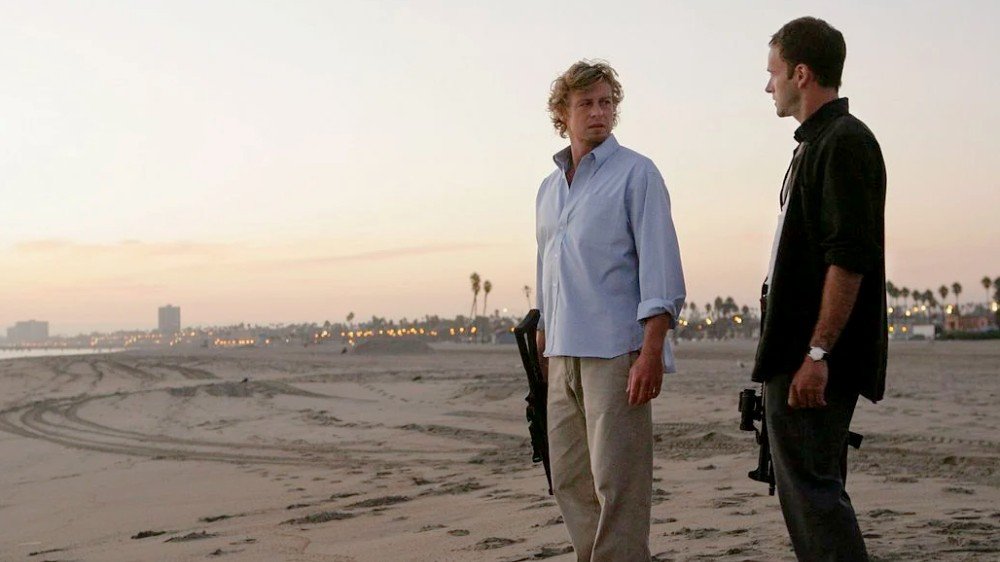
Ray Liotta! Virginia Madsen! Amy Smart! Smith had all the ingredients for a slick, gritty crime drama—following a team of high-level thieves pulling off heists while trying to maintain “normal” lives.
CBS clearly thought they had a hit. But after three episodes, viewers tuned out and CBS bailed, leaving a bunch of expensive getaway plans in the dust.
Despite moody vibes and a solid cast, the pacing was slow, the stakes fuzzy, and the tone a bit too self-serious.
Smith tried to be Heat for the small screen, but ended up feeling more like Thief: The Series… if no one watched it.
Wicked City, ABC (2015)
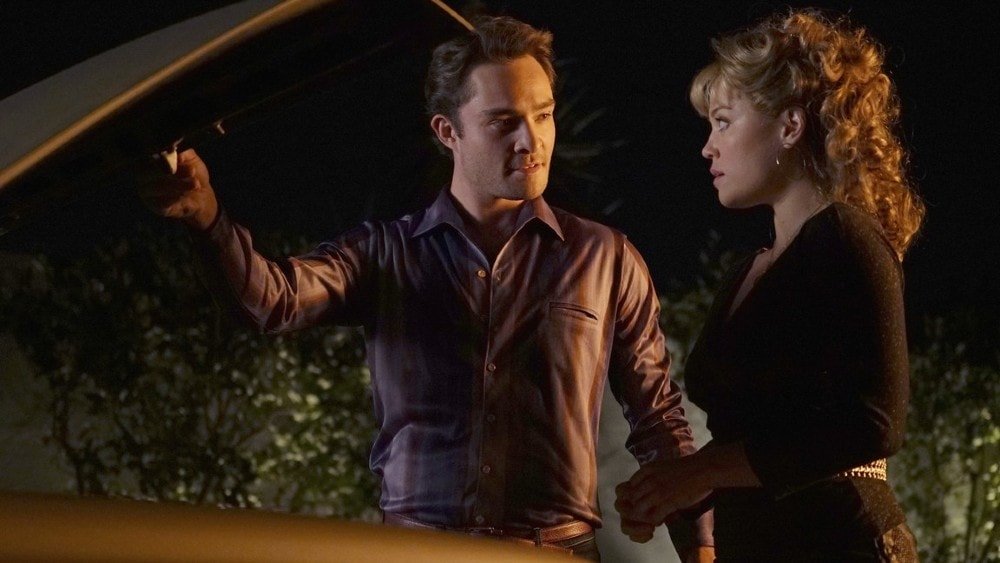
ABC dove into retro true crime with Wicked City, a dark, pulpy series about serial killers and cops prowling the Sunset Strip in 1982.
Ed Westwick (of Gossip Girl fame) played a charming murderer with a penchant for glam rock and body counts. But audiences weren’t feeling the ’80s sleaze-meets-murder vibe, and ABC axed it after three episodes.
Critics called it too lurid, too derivative, and way too obsessed with shock value. It wanted to be edgy and provocative, but just felt grimy and hollow.
Like a bad VHS rental you regret 15 minutes in, Wicked City got fast-forwarded straight to cancellation.
Four Corners, CBS (1998)

Four Corners was CBS’s attempt at a sweeping family saga about ranch life, legacy, and secrets in the American West.
Starring Ann-Margret and Raymond J. Barry, it had the vibe of a prestige drama… but none of the prestige. After three episodes, it rode off into the cancellation sunset.
Critics called it melodramatic and muddled, and audiences just didn’t care enough to invest in the family feuds and prairie angst. It had drama, dust, and horses—but no spark.
In the end, Four Corners didn’t even make it around the block.
Beyond Westworld, CBS (1980)

Before HBO’s Westworld reboot brought us robot uprisings and existential dread, there was Beyond Westworld—a short-lived CBS series that continued the 1973 film’s story.
A security agent battled rogue androids unleashed into the real world. It had killer robot potential… but not the budget to match.
Cheesy effects, clunky dialogue, and minimal action doomed it. After three episodes (with two unaired), CBS shut it down faster than you can say “malfunctioning robot cowboy.”
It’s now a fascinating relic of retro sci-fi, remembered more for its connection to a better idea than anything it actually accomplished. Definitely not the future of TV—yet.